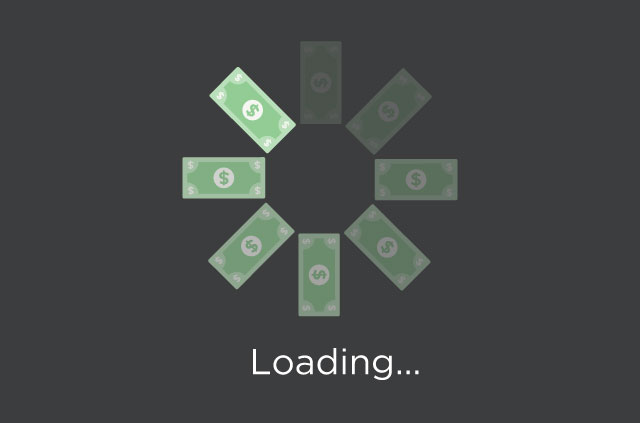Despite protests and statements from big name companies — such as Netflix, Microsoft and Amazon — speaking out in defense of net neutrality, the Federal Communications Commission (FCC) repealed the laws on June 11 of this year. This was a big deal because net neutrality laws governed how internet service providers (or ISPs) handled customer data. These regulations prevented companies from slowing down (throttling) consumer internet speeds. Net neutrality laws also prevented ISPs from signing business deals that made the internet market unfair. Nearly everybody agreed that they were a good thing — except for big companies.
Almost as soon as the laws disappeared, lawsuits and motions to reinstate began to pile up. The Senate got involved and more than 30 states have pending legislation to enact their own version of the laws. But while support has grown for the movement to restore net neutrality, little ground has been gained. Only three states have been able to pass legislation to restore the rules, but California has now taken the first step to raising that number to four.
On Sept. 7, the Californian State Assembly voted through a bill that restores net neutrality laws to the state. They would also be some of the strongest America have seen yet.
“When Donald Trump’s F.C.C. decided to take a wrecking ball to net neutrality protections, we knew that California had to step in to ensure our residents have access to a free and open internet,” California senator Scott Wiener said in a statement.
While this is a small victory in the fight for a free and open internet, it’s importance shouldn’t be understated. California is one of the most progressive states in the country, and their opinion tends to hold a lot of sway in how people think and act. Having them fight so visibly for net neutrality means there is still hope for the rest of the country. Don’t forget that the fears of a country without net neutrality are more fact than fiction, and America’s already seen examples of ISPs going back on their word about supporting an open and free Internet.
Today we posted a full-page ad in @washingtonpost reaffirming our commitment to an open internet. Read the story: https://t.co/YTVQPoK0ty pic.twitter.com/sP4rgrJDz6
— NCTA – The Internet & Television Association (@NCTAitv) May 17, 2017
On Aug. 20, lawyers in California filed a lawsuit against Verizon to try and overturn the repeal of net neutrality. Their reason was simple, to save lives. While battling wildfires in California, fire departments had their internet connection slowed down to a crawl. Verizon had slowed the data on their “unlimited” plan, citing overuse during organizing efforts. Hoping to get the data cap removed, the Fire Departments engaged in an email conversation for eight months with the company. Verizon’s response? Pay more than double their current bill to lift the data cap.
https://twitter.com/ai6yrham/status/1032018681952231425
Ars Technica: "Verizon throttled fire department’s 'unlimited' data during California wildfires."#DespicableVerizon #VerizonSucks!! .@verizonhttps://t.co/kAaia4tJUC
— Brian Foster (@BFostersbox) August 21, 2018
As the news picked up the story Verizon buckled under the backlash and promised to lift all data caps for first responders around the country. The problem was a “customer service error,” they claimed. But even if the situation could be boiled down to a simple “error” in communication, having net neutrality in place would mean things never would have gotten so bad.
Though the fire departments signed a contract that allowed Verizon to slow down connections if they hit their cap, there was a significant clause in the net neutrality rules that prohibited companies from “unreasonably interfering” with customers’ Internet access. Doing so would invite investigation from the FCC, and such a clause would have made it much easier for the fire department to get their high-speed internet back.
Net neutrality allowed consumers to file a complaint directly to the FCC and ask them to start an investigation into the matter. It’s not a stretch to say that had the problem gone to the FCC immediately, the problem would not have taken more than eight months to get resolved.
Worse still, a month later a study run through an app known as “Wehe” tracked the data use of 100,000 users. The study found that wireless carriers were throttling data for apps such as YouTube and Netflix whenever they felt like it.
“From January through early May, the app detected “differentiation” by Verizon Communications Inc. more than 11,100 times, according to the study,” Bloomberg reports. “This is when a type of traffic on a network is treated differently than other types of traffic. Most of this activity is throttling.”
The defense that Verizon, AT&T and T-Mobile use to explain this is that they are managing traffic. By slowing down some users, it eases congestion and lets other users enjoy higher speeds. The contracts everybody signs with cellphone carriers talk about this happening, but most often this only happens when data allotments have been exceeded. The fact that companies have the power to do this whenever they want to and encourage you to pay more if you don’t want it to happen is the core issue.
There’s no way to know whether this throttling is necessary and without net neutrality there is no way to trigger an investigation into it. The federal government also relieved the Federal Communication Commission from oversight duties. With the FCC no longer overseeing ISPs, the job falls to the Federal Trade Commission (FTC) who has far less power in these matters. There is no longer a line that companies are afraid to cross, and if you have a problem there is no avenue to report them.
With these factors in mind, it’s no wonder that California and other states have taken steps to protect themselves from these companies. Those promises they made mean nothing, and they will do whatever they can get away with to make as much money as possible. The Federal Government continues to debate the issue while the ones that suffer are the people who are most vulnerable.
That makes it clearer than ever what needs to happen now. Every state needs to follow California’s lead. Net neutrality needs to become law in every state. Big companies aren’t interested in doing what’s right and will only act if they are caught doing something wrong. It’s time to protect ourselves. If we won’t, nobody will.













